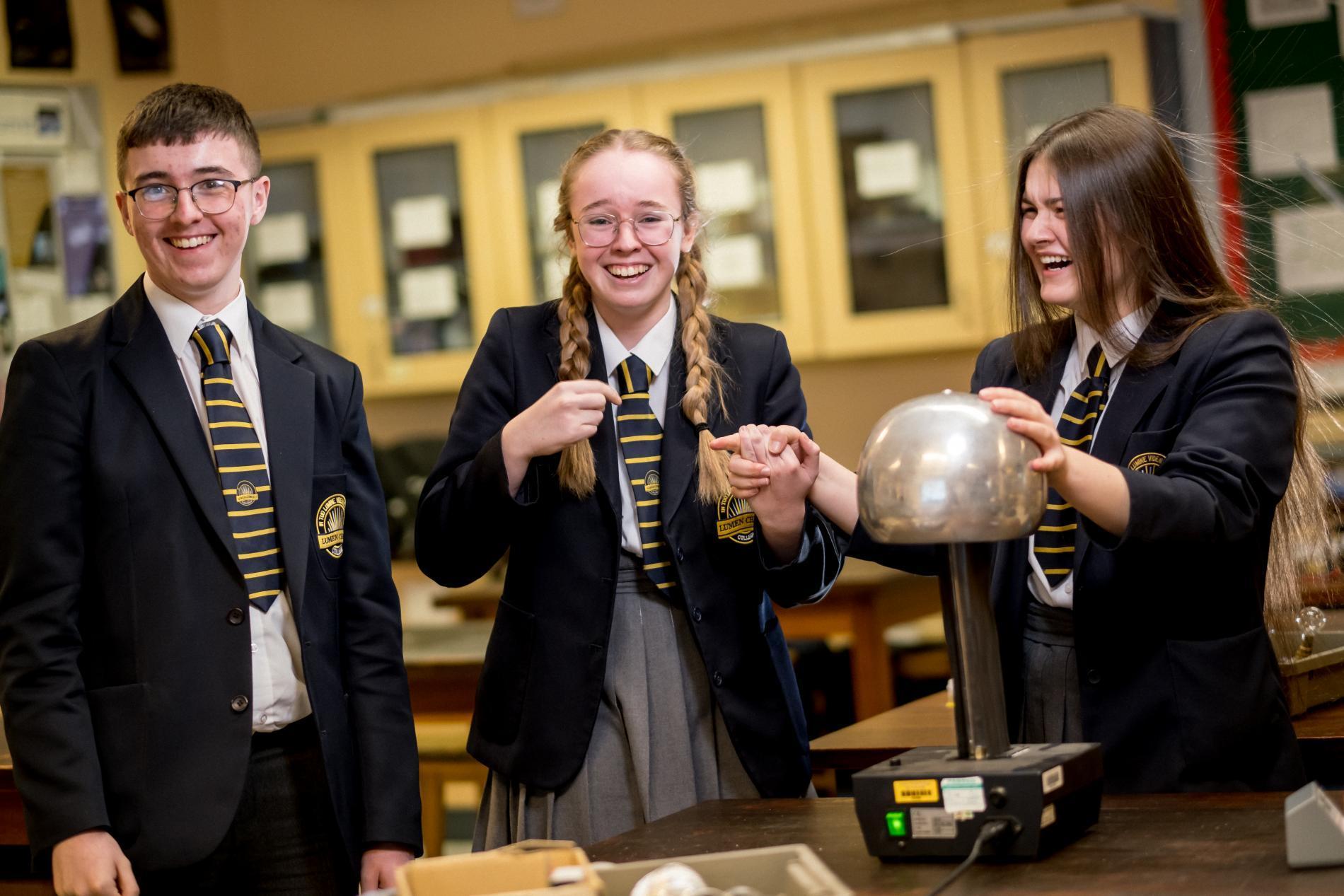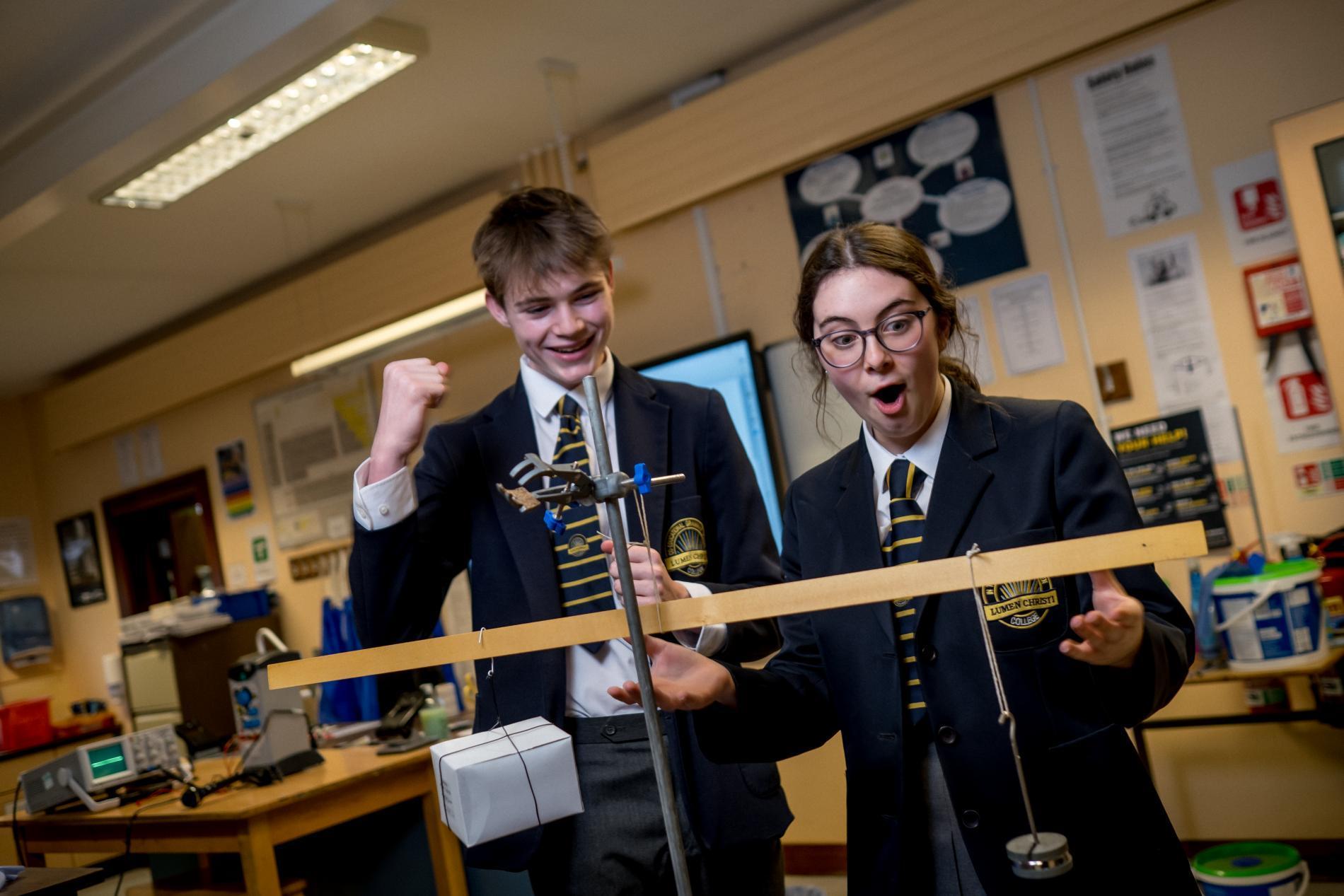Physics
Physics. Because somebody has to figure out how life, the universe and everything works…
 |
 |
Physics is the study of how the natural world works and how everything that exists interacts with everything else. From electricity to elasticity and from Hooke’s Law to the Hubble Constant; Physics attempts to make mathematical models to predict how things behave and ultimately find uses for these models.
Key Stage 3
Pupils study Physics as part of Science in Year 8 and 9 and then as a discrete subject in Year 10. They will develop practical design skills, mathematical and logical problem solving skills and a wide range of theory from pressure to electromagnetism.
GCSE
Students will follow either CCEA Physics or the Physics component of CCEA Double Award Science. These are excellent courses which provide a solid grounding in the key areas of Mechanics, Electromagnetism and Cosmology to both inspire thinking and pave the way for future study. Pupils will spend most of Year 11 doing classical mechanics including Linear motion, Newton’s Laws, Conservation of Energy and moments and will round out the year by learning nuclear theory and the equations for nuclear fission and fusion.
In Year 12, more abstract concepts such as waves and optics are taught in term 1 and then electricity and magnetism are taught in term 2. The year is finished with solar system physics and star formation and death.
A Level
The CCEA A-level Physics course leads on from and builds on the pupil experience at GCSE level. At AS level the mechanics expands to projectile motion and non-uniform motion; the waves topic grows to encompass superposition, interference and wave-particle duality which culminates in the introduction to Quantum Mechanics. At A2 level, motion becomes non-linear and objects travelling in an arc and oscillations become the norm. The world of particles meets the world of fields as we discuss electric and gravitational fields allowing for meaningful study of space, capacitors and electromagnetic induction.
Throughout A-level study, practical skills are focused upon and are tested in practical examinations at the end of Year 13 and again at the end of Year 14.
Extra-curricular
Our students have participated in the British Physics Olympiad at senior level and we have had multiple entries into the Big Bang Science Competition. In support of the learning of our students there are revision classes offered and video tutorials recorded for the key topics they study.
Where to next?
The skills acquired in the study of Physics are highly transferrable and our past pupils have gone on to work in areas such as; aerospace, defence, education, renewable energies, all types of engineering, medicine, manufacturing, meteorology, nanotechnology and telecommunications. This is not to mention the fact that a good grounding in Physics is simply life enriching as you naturally make decisions based on evidence, make plans that are robust and well thought out and are less likely to be scammed or otherwise fooled by illogical thinkers.